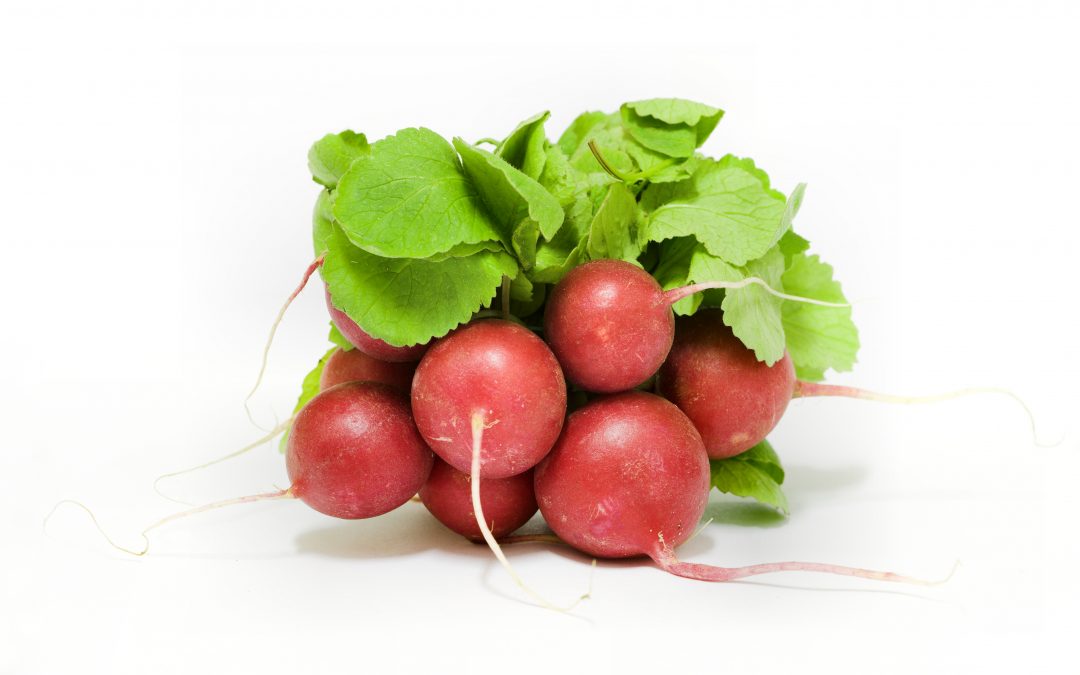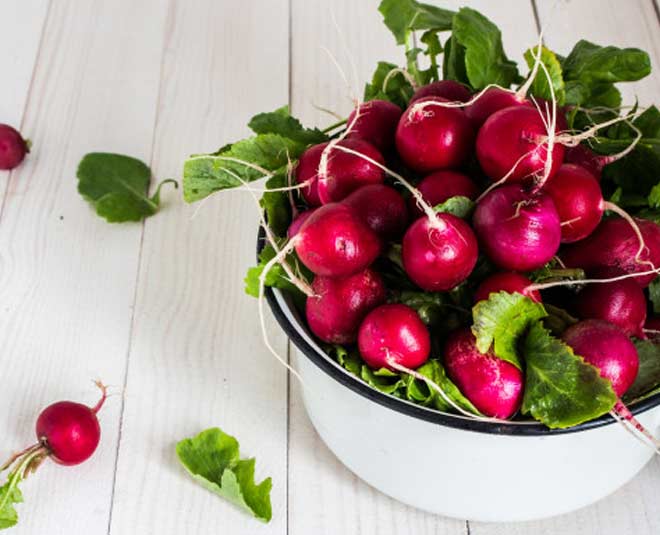Radish benefits are often overlooked, but this humble root vegetable packs a punch when it comes to nutrition and health. From boosting digestion to supporting heart health, radishes offer a range of advantages that make them a must-add to your diet. Whether eaten raw, cooked, or pickled, radishes provide essential vitamins, minerals, and antioxidants that promote overall wellness.
The Nutritional Profile of Radishes

Before diving into the specific radish benefits, it’s essential to understand their nutritional composition. Radishes are low in calories but rich in fiber, vitamin C, potassium, and other vital nutrients. Their crisp texture and peppery flavor make them a versatile ingredient in salads, soups, and even fermented dishes like kimchi.
Rich Source of Vitamin C

Radishes are an excellent source of vitamin C, a powerful antioxidant that supports immune function and skin health.
Just one cup of sliced radishes provides about 14% of the daily recommended intake of vitamin C. This nutrient plays a crucial role in collagen production, which helps maintain skin elasticity and wound healing.
Additionally, vitamin C helps combat oxidative stress by neutralizing free radicals in the body. Regular consumption of radishes can contribute to a stronger immune system, reducing the risk of infections and chronic diseases.
High in Fiber for Digestive Health
Dietary fiber is another key component of radish benefits, particularly for digestion.
Fiber adds bulk to stool, promoting regular bowel movements and preventing constipation. Radishes also contain compounds that stimulate bile production, aiding in fat digestion and liver detoxification.
Beyond digestion, fiber helps regulate blood sugar levels by slowing glucose absorption. This makes radishes a great choice for individuals managing diabetes or looking to maintain stable energy levels throughout the day.
Low-Calorie and Hydrating
Radishes are composed of about 95% water, making them incredibly hydrating and low in calories.
Their high water content helps keep you full without adding excess calories, making them ideal for weight management. The natural crunch of radishes also satisfies cravings for something crispy without resorting to unhealthy snacks.
Furthermore, the electrolytes in radishes, such as potassium, help maintain fluid balance in the body. This makes them a refreshing addition to summer salads or post-workout meals.
Health Benefits of Radishes

Beyond their nutritional value, radishes offer numerous health benefits that can enhance overall well-being. From heart health to cancer prevention, these root vegetables are more than just a garnish.
Supports Heart Health
Radishes contain compounds that contribute to cardiovascular wellness.
Potassium in radishes helps regulate blood pressure by counteracting the effects of sodium. Additionally, their anthocyanin content—a type of antioxidant—has been linked to reduced inflammation and improved blood vessel function.
Regular consumption may lower bad cholesterol (LDL) levels while increasing good cholesterol (HDL). This dual action makes radishes a heart-friendly food that supports long-term cardiovascular health.
Aids in Detoxification
The liver plays a vital role in detoxifying the body, and radishes can support this process.
Compounds like indole-3-carbinol and sulforaphane in radishes help flush out toxins and promote liver enzyme activity. These elements assist in breaking down harmful substances, reducing the burden on the liver.
Moreover, radishes have diuretic properties, encouraging the elimination of waste through urine. This natural detox effect can help reduce bloating and support kidney function.
Potential Cancer-Fighting Properties
Some studies suggest that radishes may have anti-cancer properties due to their phytochemical content.
Glucosinolates, found in radishes, are sulfur-containing compounds that may inhibit the growth of cancer cells. Research indicates they could be particularly effective against colon, breast, and prostate cancers.
While more studies are needed, incorporating radishes into a balanced diet may contribute to cancer prevention strategies. Their antioxidant-rich profile further supports cellular health and reduces oxidative damage.
Culinary Uses and Creative Ways to Enjoy Radishes

Radishes are incredibly versatile in the kitchen, offering both flavor and texture to various dishes. Whether raw, roasted, or fermented, there are countless ways to enjoy their benefits.
Raw Radishes in Salads and Snacks
The crisp, peppery taste of raw radishes adds a refreshing element to salads.
Thinly sliced radishes pair well with leafy greens, cucumbers, and citrus-based dressings. Their natural spiciness balances creamy ingredients like avocado or goat cheese, creating a harmonious flavor profile.
For a quick snack, try dipping radish slices in hummus or guacamole. The combination of creamy and crunchy textures makes for a satisfying and nutritious bite.
Roasted or Grilled Radishes
Cooking radishes mellows their sharpness and brings out a subtle sweetness.
Tossing radishes with olive oil, salt, and herbs before roasting caramelizes their natural sugars. The result is a tender, slightly sweet side dish that complements proteins like chicken or fish.
Grilling radishes adds a smoky depth, making them a great alternative to potatoes for those watching their carb intake. Try them in kebabs or as a standalone grilled vegetable medley.
Fermented Radishes for Gut Health
Fermentation enhances the probiotic content of radishes, benefiting gut health.
Pickling radishes in a brine of salt, water, and spices creates tangy, probiotic-rich condiments. These fermented radishes can be added to tacos, sandwiches, or rice bowls for a flavorful and gut-friendly boost.
Kimchi, a traditional Korean dish, often includes radishes as a key ingredient. The fermentation process not only preserves the vegetable but also increases its nutritional value.
FAQs About Radish Benefits
:max_bytes(150000):strip_icc()/radish-eyes-fb-2000-56e81d38d6944eb9b6cf6f3cf5338b49.jpg)
Are radishes good for weight loss?
Yes, radishes are low in calories and high in water and fiber, making them an excellent choice for weight management. Their natural crunch can also help curb cravings for unhealthy snacks.
Can radishes help with digestion?
Absolutely. The fiber in radishes promotes regular bowel movements, while their compounds stimulate bile production, aiding in fat digestion and liver detoxification.
Do radishes have any anti-inflammatory properties?
Yes, radishes contain antioxidants like vitamin C and anthocyanins, which help reduce inflammation in the body and support overall health.
Are there any side effects of eating too many radishes?
Excessive consumption may cause bloating or gas due to their high fiber content. People with thyroid conditions should also moderate intake as radishes contain goitrogens, which may interfere with thyroid function.
How should I store radishes to keep them fresh?
Remove the greens and store radishes in a sealed container with a damp paper towel in the refrigerator. This keeps them crisp for up to two weeks.
Video

Conclusion

Radish benefits extend far beyond their crunchy texture and peppery flavor. Packed with essential nutrients, antioxidants, and fiber, they support digestion, heart health, detoxification, and even potential cancer prevention. Whether enjoyed raw, cooked, or fermented, radishes are a versatile and nutritious addition to any diet. By incorporating them into your meals, you can take advantage of their many health-boosting properties while adding variety to your plate.